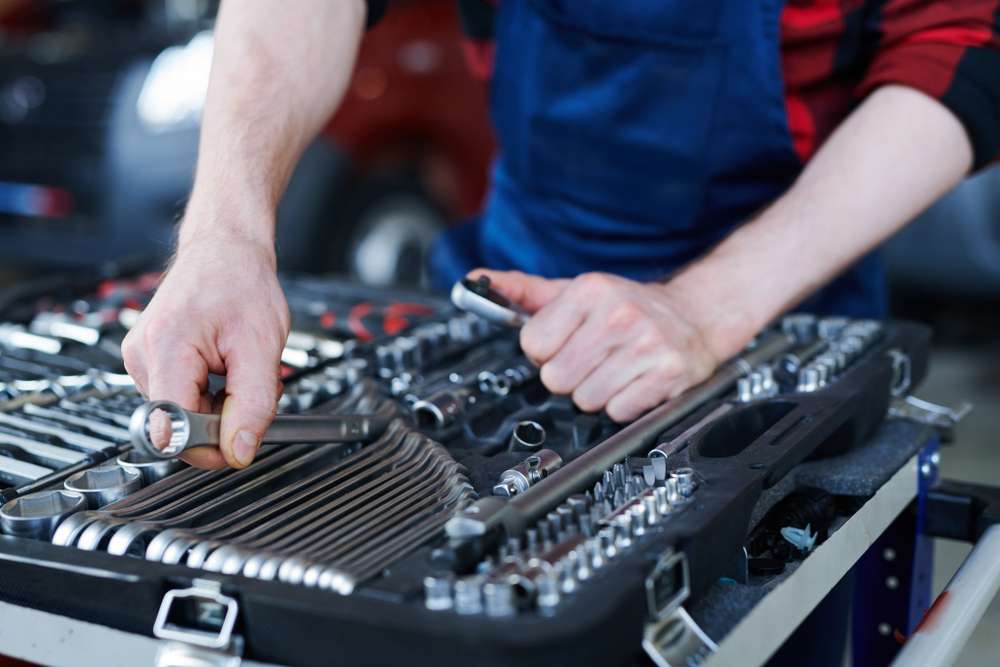Engine Repair Training: How to Learn Essential Skills, Tools, and Safety Practices for Automotive Maintenance
Engine repair training provides a solid foundation for anyone interested in maintaining and repairing automotive engines. This article explains what to expect from a typical training program, including hands-on practice with essential tools, learning diagnostic techniques, and understanding important safety procedures. By exploring the key skills taught and the structure of different courses, you can make an informed decision about which training best fits your goals. Whether you are new to automotive maintenance or looking to expand your expertise, proper training is an important step toward working confidently and safely with engines.

What are the essential skills for engine repair?
Engine repair requires a diverse set of skills that combine technical knowledge with practical abilities. Some of the most crucial skills include:
-
Understanding engine components and their functions
-
Diagnosing engine problems using both visual inspection and diagnostic tools
-
Disassembling and reassembling engines
-
Performing precise measurements and adjustments
-
Reading and interpreting technical manuals and schematics
-
Troubleshooting electrical and mechanical issues
-
Welding and metalworking for certain repairs
These skills form the core of engine repair training programs and are essential for anyone looking to pursue a career in automotive maintenance.
Which types of tools are used in automotive maintenance?
Automotive maintenance involves a wide array of specialized tools, each designed for specific tasks. Some of the key tools used in engine repair include:
-
Hand tools: Wrenches, sockets, screwdrivers, and pliers
-
Diagnostic equipment: OBD-II scanners, multimeters, and compression testers
-
Specialty tools: Torque wrenches, valve spring compressors, and piston ring compressors
-
Power tools: Impact wrenches, air compressors, and drill presses
-
Lifting equipment: Floor jacks, engine hoists, and vehicle lifts
-
Cleaning tools: Parts washers, wire brushes, and pressure washers
Learning to properly use and maintain these tools is a crucial part of engine repair training, as it ensures both efficiency and safety in the workplace.
How important are safety practices in engine repair?
Safety practices are paramount in engine repair due to the potential hazards associated with working on complex machinery. Proper training emphasizes:
-
Personal protective equipment (PPE) usage, including safety glasses, gloves, and steel-toed boots
-
Proper handling and storage of hazardous materials like oils, coolants, and solvents
-
Safe use of power tools and lifting equipment
-
Electrical safety when working with vehicle electrical systems
-
Fire safety and prevention in the workshop environment
-
Ergonomic practices to prevent injuries from repetitive motions or heavy lifting
By prioritizing safety, training programs ensure that technicians can perform their duties without risking their health or well-being.
How can one choose the right engine repair training program?
Selecting the right engine repair training program depends on several factors:
-
Accreditation: Look for programs accredited by recognized organizations like ASE (Automotive Service Excellence) or NATEF (National Automotive Technicians Education Foundation)
-
Curriculum comprehensiveness: Ensure the program covers all aspects of engine repair, from basic maintenance to advanced diagnostics
-
Hands-on experience: Prioritize programs that offer substantial practical training alongside theoretical knowledge
-
Instructor qualifications: Research the experience and credentials of the teaching staff
-
Facility and equipment: Check if the training center has up-to-date tools and equipment that reflect current industry standards
-
Job placement assistance: Some programs offer career support to help graduates find employment
-
Cost and duration: Consider your budget and time constraints when choosing a program
By carefully evaluating these aspects, you can select a training program that aligns with your career goals and learning preferences.
What career opportunities are available after engine repair training?
Completing engine repair training opens up a variety of career paths in the automotive industry. Some potential opportunities include:
-
Automotive technician or mechanic in dealerships, independent repair shops, or fleet maintenance facilities
-
Specialty engine rebuilder or performance tuner
-
Diesel engine technician for trucks and heavy equipment
-
Motorsports mechanic for racing teams
-
Mobile mechanic providing on-site repairs
-
Technical trainer or instructor for automotive programs
-
Service writer or automotive service manager
-
Parts specialist or automotive parts store manager
The skills acquired during engine repair training are also transferable to related fields such as marine engine repair, small engine maintenance, or industrial machinery repair.
How much does engine repair training typically cost?
The cost of engine repair training can vary significantly depending on the type of program, duration, and institution. Here’s an overview of typical costs for different training options:
-
Technical or vocational schools
-
Community colleges
-
Apprenticeship programs
-
Manufacturer-specific training
-
Online courses and certifications
| Training Type | Duration | Estimated Cost Range |
|---|---|---|
| Technical/Vocational School | 6-12 months | $5,000 - $20,000 |
| Community College (Associate’s Degree) | 2 years | $10,000 - $30,000 |
| Apprenticeship Program | 2-4 years | $0 - $5,000 (often paid) |
| Manufacturer-Specific Training | 1-4 weeks | $1,000 - $5,000 per course |
| Online Certification Courses | Variable | $500 - $2,000 per course |
Prices, rates, or cost estimates mentioned in this article are based on the latest available information but may change over time. Independent research is advised before making financial decisions.
Engine repair training is an investment in your future career in the automotive industry. By acquiring the necessary skills, familiarizing yourself with essential tools, and prioritizing safety practices, you’ll be well-prepared to tackle the challenges of modern engine maintenance and repair. Whether you choose a formal education program or opt for hands-on apprenticeship, the knowledge and experience gained will serve as a solid foundation for a rewarding career in automotive technology.
The shared information of this article is up-to-date as of the publishing date. For more up-to-date information, please conduct your own research.




